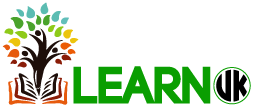How Can Your Child’s Memory Grow with Early Childhood
Education Programs
The early years of a child lay a foundation for the overall development. Having a good memory makes learning enjoyable and easy. A strong memory helps a child to create experiences that can be cherished and shared.
Early childhood education programs engage children in different activities that aid in sharpening the memory.
Learning is Made Fun
A stressful environment can adversely impact memory. Parents want their kids to be perceptive, smart, and intelligent. However, exerting pressure does no good. Early childhood education programs are designed to eliminate stress and pressure. It makes learning fun and simple, thereby enabling the child to grasp and learn new things. The use of colourful and vibrant props makes the learning process further enjoyable.
Allowing a Child to Recall
Asking questions that require the kid to recall is a good exercise. A simple question like what did you eat at breakfast makes the child think and recall. In case children are unable to remember, they should be stopped from exerting any pressure. Prompters or clues may help in such a situation.
At an early education session, the teachers keep the interaction easy and ensure that the child doesn’t experience any discomfort. Recollecting and sharing information makes the memory richer.
Developing the Ability to Visualise
Trained teachers use different techniques to aid a child’s imagination. While narrating a story, they typically use voice modulation, puppets, expressions, and various props. They even ask the child to visualise the characters or a particular scene of the story. Imaginations also help to develop creativity in a kid.
Encouraging Active Reading
Reading out a story to kids enhances their ability to listen and understand patiently. Asking the child to read improves the ability to converse and supports developing the memory.
Besides letting the child read, the teacher also engages in a purposeful conversation to let the little ones express their thoughts and views on the story read. Such active strategies are essential, which are skilfully applied by early childhood educators.
Encourage to Talk and Share
An early childhood teacher encourages your child to narrate and share past experiences. Talking about a visit to the zoo or a family picnic makes a child happy as the story enables visualisation of the happy trip. Asking a few specific questions makes their memory stronger. These may be- which animals did you see at the zoo? What were the animals doing? Did you see any birds?
Playing Games
Every game is played with rules. The players must remember and follow the rules. Remembering these rules doesn’t require any efforts owing to the fun-filled environment. The child learns quickly and doesn’t need repeated reminders.
For instance, a sorting game requires a kid to put a shape in the right slot, which the kid can happily do without repeated reminders. The educator allows your child to explore and play different games. The games typically have different levels of difficulties to which a child is gradually exposed. Game rules thus act as a memory booster.
Early childhood education programs introduce your child to age-appropriate activities and puzzles. This serves as an essential technique to boost the memory of your child in an effortless way.

